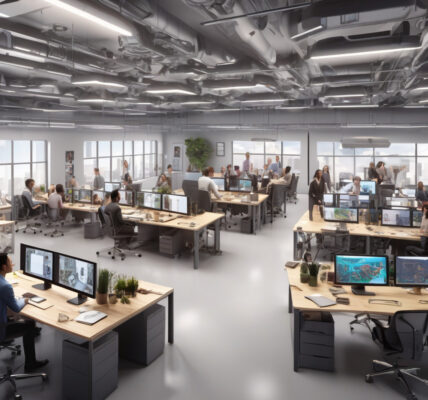More retailers tapping tech to improve store associate productivity
How Retailers are Harnessing Technology to Enhance Store Associate Productivity
In the ever-competitive landscape of retail, store associate productivity plays a pivotal role in driving sales, enhancing customer experience, and ultimately, boosting the bottom line. With the rise of e-commerce and changing consumer behaviors, retailers are increasingly turning to technology to empower their store associates and streamline operations. By leveraging innovative tools and platforms, forward-thinking companies are revolutionizing the way their staff work, interact with customers, and drive business results.
One of the key technologies transforming the retail industry is the implementation of mobile devices and applications. Equipping store associates with smartphones or tablets loaded with specialized apps can significantly increase their efficiency and effectiveness on the sales floor. These devices enable real-time access to product information, inventory levels, customer data, and even offer personalized recommendations. For example, associates at Sephora use mobile devices to access customer profiles, purchase history, and product details to provide personalized beauty advice and recommendations, leading to a more tailored shopping experience.
Furthermore, retailers are investing in training and communication platforms to onboard, educate, and engage their store associates effectively. By utilizing digital learning management systems, employees can access training modules, product tutorials, and company updates at their convenience. This not only enhances their product knowledge and selling skills but also fosters a sense of empowerment and loyalty among the staff. For instance, Adidas implemented a gamified training app that allows employees to earn points and rewards for completing training modules, resulting in increased engagement and knowledge retention.
In addition to mobile technology and training platforms, many retailers are leveraging data analytics and artificial intelligence to optimize store operations and empower their associates. By analyzing customer behavior, sales patterns, and inventory data, retailers can make informed decisions to improve merchandising, pricing, and staffing levels. AI-powered tools can also provide predictive insights to help associates anticipate customer needs, recommend products, and personalize the shopping experience. Walmart utilizes AI-powered cameras in its stores to monitor checkout lines and open additional counters when necessary, reducing wait times and improving customer satisfaction.
Moreover, some retailers are embracing IoT (Internet of Things) devices to enhance store operations and empower their staff. Connected devices such as smart shelves, beacons, and RFID tags can provide real-time data on product availability, location, and customer traffic. This enables store associates to quickly locate items, replenish stock, and assist customers more efficiently. For example, Macy’s implemented RFID technology in its stores to track inventory levels accurately, resulting in a 50% reduction in out-of-stock items and a significant increase in sales.
In conclusion, the integration of technology in retail stores is revolutionizing the way store associates work, interact with customers, and drive business results. By equipping employees with mobile devices, training platforms, data analytics, AI tools, and IoT devices, retailers can enhance store associate productivity, improve the customer experience, and stay ahead in a competitive market. As technology continues to advance, retailers must embrace these innovations to thrive in the digital age and deliver exceptional shopping experiences.
store associate, productivity, technology, retail, customer experience












